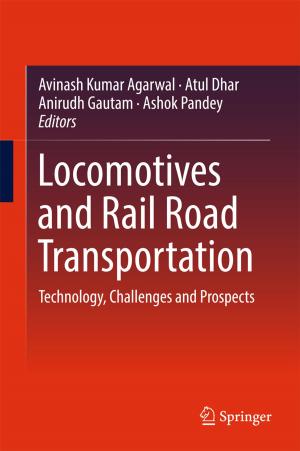Principles of Regional Science
Business & Finance, Economics, Urban & Regional, International Economics| Author: | Zheng Wang | ISBN: | 9789811053672 |
| Publisher: | Springer Singapore | Publication: | October 17, 2017 |
| Imprint: | Springer | Language: | English |
| Author: | Zheng Wang |
| ISBN: | 9789811053672 |
| Publisher: | Springer Singapore |
| Publication: | October 17, 2017 |
| Imprint: | Springer |
| Language: | English |
This book summarizes the research findings in regarding a region as a rational and abstract concept and explores the principles of regional science. Focusing on location theory, spatial dynamics and regional evolution theory, it stresses that the region as a scientific concept is an essential abstract of an economic entity of a place. While it introduces a number of case studies, the content is general and universal rather than specific.
Beginning with location theory – the basis of regional science – it explains how regions breed their own characteristics as economic entities against a background of place. For example, it discusses the location theory of the tourism industry and analyzes issues of facility location and R&D-industry location theory.
The second part of the book addresses interactions with the spatial dynamics, including the dynamic mechanism of regions against a background of space. Spatial dynamics, which includes concepts from statistical physics, provides insights into the dynamic mechanism of aggregation, diffusion, and industrial clustering in regional science as well as in geography and economics.
The book then describes regional dynamics as a development of spatial dynamics: REGION is completely independent as a research object and is no longer part of spatial dynamics. This book also discusses in detail regions as the dynamic characteristics of the economy or the basic characteristics of a certain place and examines the theory of regional evolution. It argues that regions are evolution and irreversible features of development with path dependence, which are the characteristics of a region that differ from general economic phenomena.
This book by Professor Zheng Wang is outstanding. Its focus on Regional Science will open this area up to a wide variety of theoretical and applied researchers. I recommend the work without reservations. It covers critically important principles in the field and should be read and used by students, faculty and applied researchers doing policy analysis. I can see this as an important handbook and reference work as well as a textbook in the field. Kingsley Haynes
This book summarizes the research findings in regarding a region as a rational and abstract concept and explores the principles of regional science. Focusing on location theory, spatial dynamics and regional evolution theory, it stresses that the region as a scientific concept is an essential abstract of an economic entity of a place. While it introduces a number of case studies, the content is general and universal rather than specific.
Beginning with location theory – the basis of regional science – it explains how regions breed their own characteristics as economic entities against a background of place. For example, it discusses the location theory of the tourism industry and analyzes issues of facility location and R&D-industry location theory.
The second part of the book addresses interactions with the spatial dynamics, including the dynamic mechanism of regions against a background of space. Spatial dynamics, which includes concepts from statistical physics, provides insights into the dynamic mechanism of aggregation, diffusion, and industrial clustering in regional science as well as in geography and economics.
The book then describes regional dynamics as a development of spatial dynamics: REGION is completely independent as a research object and is no longer part of spatial dynamics. This book also discusses in detail regions as the dynamic characteristics of the economy or the basic characteristics of a certain place and examines the theory of regional evolution. It argues that regions are evolution and irreversible features of development with path dependence, which are the characteristics of a region that differ from general economic phenomena.
This book by Professor Zheng Wang is outstanding. Its focus on Regional Science will open this area up to a wide variety of theoretical and applied researchers. I recommend the work without reservations. It covers critically important principles in the field and should be read and used by students, faculty and applied researchers doing policy analysis. I can see this as an important handbook and reference work as well as a textbook in the field. Kingsley Haynes















